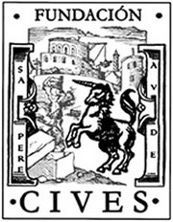Presentación del proyecto
Consulta aquí los objetivos y actividades del proyecto
Temas decididos en el grupo español:
• Youth: youth unemployment, professional mobility, Erasmus, EU title validation
• Education: citizenship education in Europe
• Children: prevention policies on child poverty
• Immigration: intecularity policies, xenophobia, emigration, free circulation
• Gender equality
• Democratic deficit
• Climate change
Comunicación con los y las representantes parlamentarios (inglés):
Primera carta enviada a los y las eurodiputadas de parte de 250 ciudadanos y ciudadanas europeas. Las preguntas españolas, tal y como se decidió en el grupo, hacen referencia al TTIP y a la manera en la que puede afectar a los servicios públicos.
Dear members of the European Parliament,
we write you on behalf of the civil society organizations involved in the LED project – Laboratories of European democracy.
The project is based in five European Member States : Romania, Italy, France, Spain and Denmark.
The aim is to involve some groups of citizens, living in local communities of different part of the European Union, in the life of the European Parliament and to established direct relations with European Members of Parliament.
We strongly believe a new alliance is needed, between active the active citizens and European MPs committed for democracy and rights, to save our Europe and its democratic
Here you can find some questions to you – arose from the debate on the European Parliament agenda between the citizens involved in the local groups, after the European Forum attended by all the project partners in Lampedusa on October.
As you can see, the questions are related to different issues, each chosen by one local group of citizens – for many of them, it is the first occasion to deal with the European agenda. Of course, you can choose between them – and you can answer only one or more.
We really hope you will kindly find the time to answer: you will help us to deepen the debate, and to feel closer the European Parliament.
You can find the questions below. Your answers can be sent to: prestianni@arci.it, bolini@arci.it
Thank you for your kindly attention.
The LED project\\\\\\\\\\\\\\\’ groups
QUESTIONS TO THE EUROPEAN MEMBERS OF THE PARLIAMENT
(Please, provide answer to one or more questions)
About TTIP negotiations:
How will TTIP agreement affect public services and, particularly, public education services which guarantee the right to education for all citizens in the Union?
Do you consider, as MEP’s, that welfare and quality public services must stand apart from economic arrangements?
Can you guarantee that essential public services will remain public after the treaty?
Why is this negotiation being so secret?
Can you propose a EU referendum on this subject?
About immigration and borders management:
How the Mediterranean borders should be managed?
Is there a contradiction between the \\\\\\\\\\\\\\\»save and rescue\\\\\\\\\\\\\\\» operations in the Mediterranean Sea and the border control policies of Frontex and Member States?
What steps should be taken to share equally the burden of immigration among the EU Member States?
What should be done in order to prevent tragedies affecting refugees in the Mediterranean?
About work and unemployment
Which is the EU agenda for the coming months to decrease unemployment and the severe poverty?
Which is the major long terms strategy of the EMPL Committee regarding the problems of unemployment?
About young people integration
Which are the steps in the EP agenda to act in favor of young people professional integration in Europe?
How can you help young people to validate and give values to their experiences made outside of the formal system?
About the role of the European Parliament
Many UE decisions have consequences at the local community level. Which is the sovereignty of the European Parliament, elected by European citizens, in regards of local communities?
Do the decision-making process of the UE reduce in fact the power of the citizens? How to avoid it?
How the role of European citizens is expressed in the European Treaties?
Do the EU Treaties take in account the different national sensibility?

